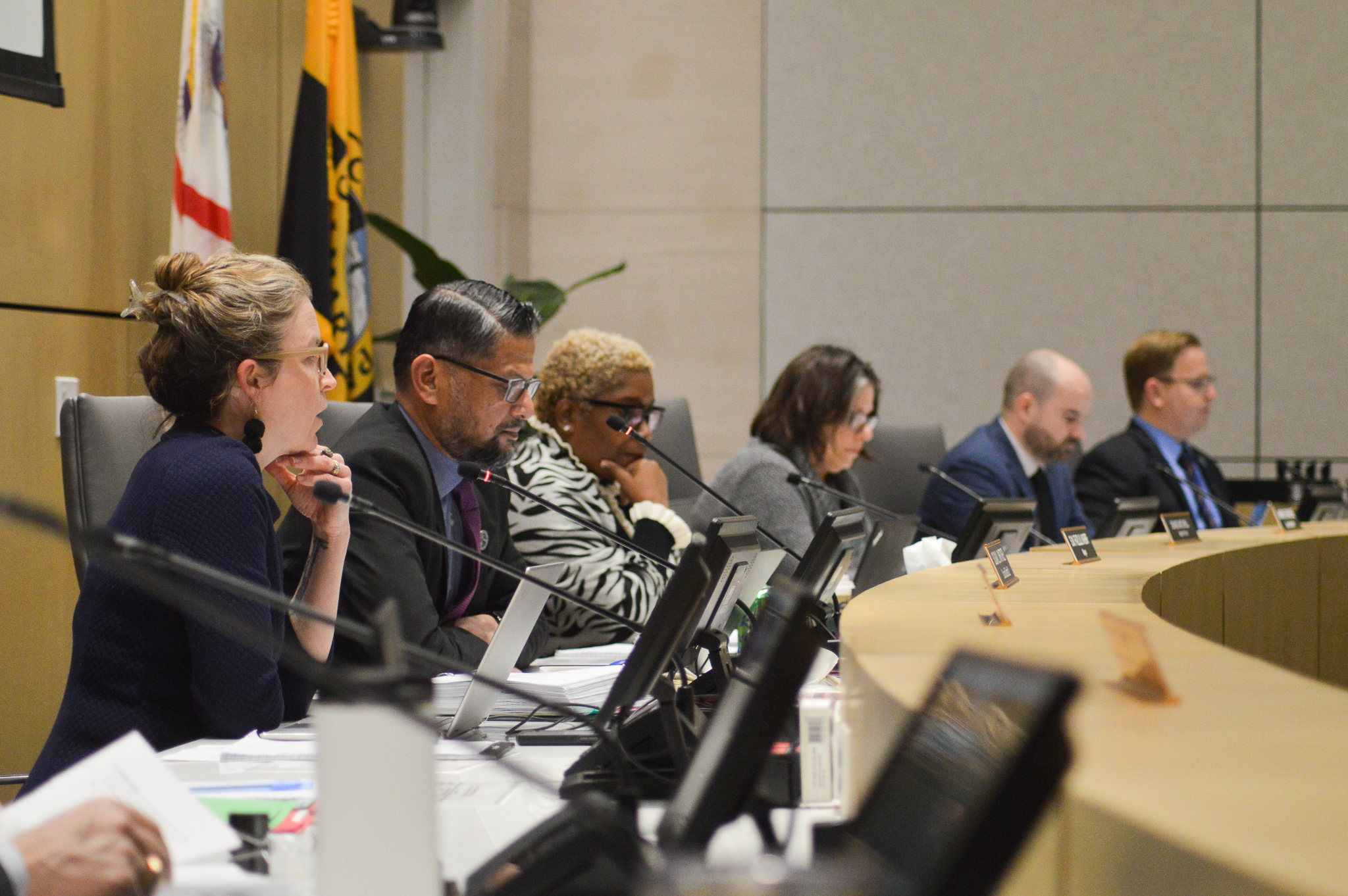The College Park City Council will discuss several initiatives to address the city’s vacancy rates, the role of the mayor pro tem, the city’s 2025 fiscal year budget and more this spring.
This past fall, the city council increased homeownership grants for first responders and voted to distribute funds to businesses through the city’s business retention and attraction fund, among other initiatives.
District 1 council member Jacob Hernandez is a new addition to the council after the November city election, and the remaining seven council members return for 2024.
Here is a preview of what the city council will discuss this spring.
Vacant and blighted property tax subcommittee
The city council will vote on whether to create a subcommittee to discuss the proposed vacant and blighted property tax in College Park on Tuesday.
The subcommittee would define the specifications for a property to be considered “vacant” and “blighted” and the tax rate. The prospective bill may follow similar bills in Washington, D.C., Baltimore City and Upper Marlboro.
College Park Mayor Fazlul Kabir is optimistic that the proposed vacancy tax be implemented quickly after the formation of the subcommittee. While the vacancy tax will require county and state approval, Kabir has not seen any significant opposition from community members, he said.
“We’ll probably need to set the timeline [to implement the tax] so that it will be up to the new subcommittee to decide to recommend as part of their report,” Kabir said.
Kabir added that he believes that the council will vote in favor of creating the committee.
[College Park City Council discusses rent subsidy pilot program for student housing]
The committee’s composition will also be debated at Tuesday’s meeting.
After speaking with Kabir, District 3 council member Stuart Adams said that the committee may include College Park residents and city council members. Expanding the subcommittee to include residents would be “helpful,” Adams said.
Expanding mayor pro tem’s role
After several debates across the past few months, the city council will consider a charter resolution to expand the function of the city’s mayor pro tem.
The proposed resolution would create a procedure for the mayor and mayor pro tem to share responsibilities for specific city functions, such as signing off on letters of support or opposition addressed to the county or state. The charter resolution’s language is “very broad” and would allow for the city’s mayor and mayor pro tem to modify any prior power sharing arrangements, Kabir said.
“Even [if] the mayor [isn’t] there, there are some functions the mayor can only do,” Kabir said.
The proposed change comes after former College Park Mayor Patrick Wojahn resigned last March as he faced charges of possession and promotion or distribution of child sexual abuse materials.
District 4 council member Denise Mitchell, the current mayor pro tem, expressed support for the proposed resolution during October discussions, citing that the resolution would be a sign of progression for the city.
“We can’t go backwards. We have to go forward,” Mitchell said in an October city council meeting. “In going forward, we have to set up some type of protocol for success.”
The bill will be presented to the city council on Feb. 13 and a public hearing will be held on March 5.
[College Park City Council member Jacob Hernandez outlines priorities for first term]
Approving the 2025 fiscal year budget
The city council will debate the 2025 fiscal year budget over the next few months and likely approve the measure by the end of May, which is when the 2024 budget was approved last year.
Increased investment for ensuring pedestrian and biker safety across the city and furthering affordable housing trusts for College Park residents and University of Maryland graduates are priorities in upcoming budget discussions, Kabir said.
District 1 resident Carol Macknis hopes the city will invest in more educational resources to ensure biker and pedestrian safety.
“In order to drive I have to get a license. For me to drive a bike I don’t need a license. For me to walk I don’t need a license for that,” Macknis said in a District 1 discussion forum on Tuesday. “We need more education on that.”
In next year’s budget, Kabir said the city will also look into establishing an investment fund for future College Park developments proposed by city residents. The fund would be a “cooperative venture” between developers and the College Park community, he added.
“If someone is interested [in coming] to the city… we can [tell] them, ‘Hey, the community actually talked about it and these are the options we recommend and if you support them they will be supporting you as well,” Kabir said.



